Cardiology & Cardiac Surgery In Jaipur
CKS Hospital Provides Best Cardiac Surgery in Jaipur. Our hospitals have state-of-the-art Cath Labs, operation theatres, and other heart care technologies.
Cardiology is the medical department that deals with the conditions and diseases associated with the heart. Experienced cardiologists manage such ailments. At CKS Hospitals, we provide you with the team of the best cardiologist in Jaipur, Rajasthan. However, heart surgeons who specialise in surgical procedures are carried out to correct heart conditions.
Cardiovascular disease (CVD) is a term often used for heart disease. CKS Hospitals is one of the best Cardiac hospitals in Jaipur, India rendering treatment to ailments like heart defects, congenital heart disease, pulmonary heart failure, and coronary artery diseases. If you want to know more about cardiology hospitals, please visit CKS Hospital, the best cardiology hospital in Jaipur.
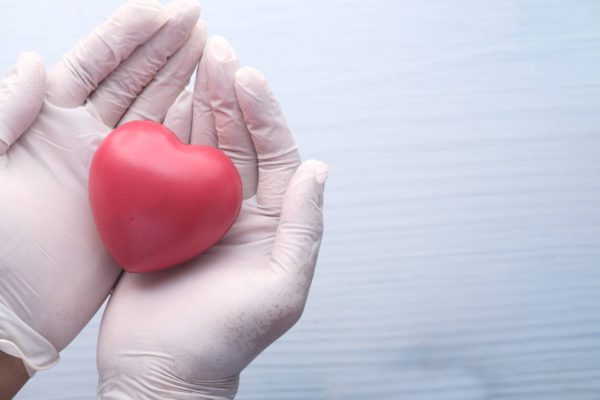
CKS Hospitals is a one-stop destination for several kinds of cardiac treatments with cutting-edge technology. It serves heart conditions like Invasive and Interventional Cardiology, Electrophysiology, pacemaker and Arrhythmia services, abdominal and descending thoracic aneurysm and varicose veins, ACD, CRT, Heart Hole surgeries (ASD, VSD, PDA), Paediatric Cardiac Surgery, and Angioplasty/Angiography.
Types of Cardiovascular Diseases
Some of the most common types of cardiovascular diseases include:
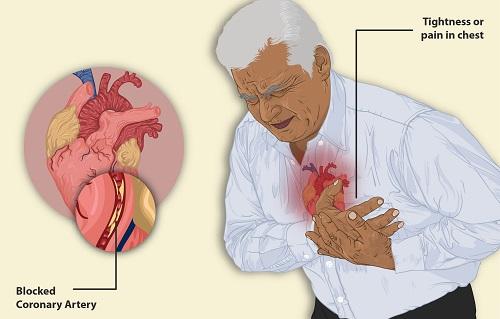
1. Angina
Angina arises when the heart does not get enough blood supply. This happens due to the expansion of plaque in the blood vessel that hinders the blood flow. The heart starts beating faster and harder to revive the blood supply, and this condition is known as angina.
2. Arrhythmia
Arrhythmia refers to the conditions where the normal rhythm of the heart is interrupted, resulting in either adding extra heartbeat or skipping of heartbeats. Moreover, arrhythmia may not cause any problem and appears as fluttering or racing heart. There are several types of arrhythmia:
– Fast heartbeat
– Slow heartbeat
– Irregular heartbeat
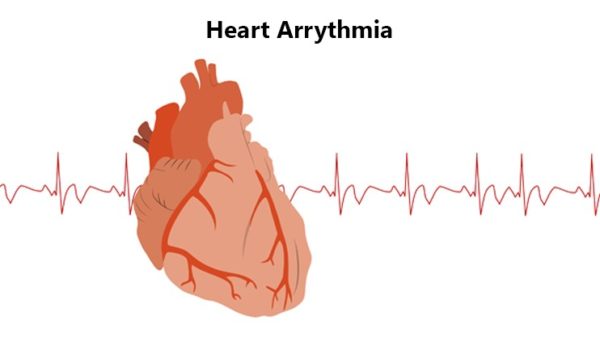
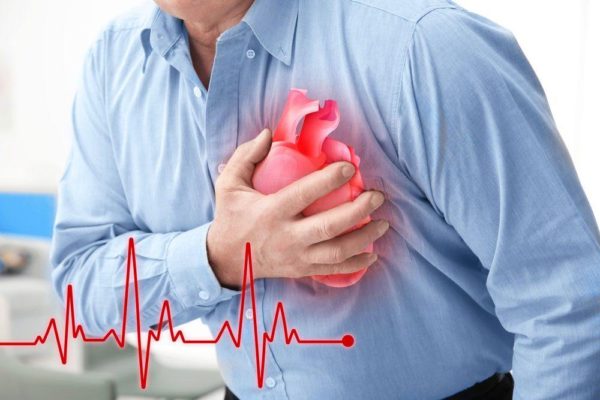
3. Heart Attack
Must have heard a lot about heart attack, the most chronic heart complications, also called a myocardial infarction (MI), acute myocardial infarction, coronary occlusion or coronary thrombosis. It happens due to sudden interruption of blood supply to the heart.
The blockage appears due to a fatty substance called plaque inside the walls of the arteries. When plaque deposit breaks down, several blood cells get stuck to it, forming a blood clot.
Also, Read – Top 10 Cardiologist in Jaipur
4. Heart Failure
It is also known as congestive heart failure, and it causes when the heart muscles cannot pump blood throughout the body. Health conditions like high blood pressure and coronary artery disease may lead to heart failure.

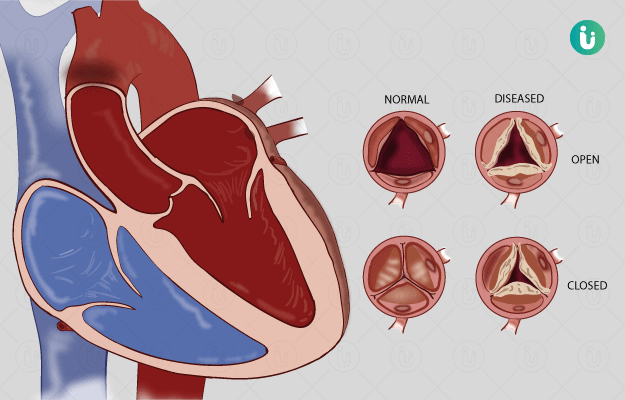
5. Rheumatic Heart Disease
This ailment refers to the damage in one or more heart valves that may develop after rheumatic fever. The fever usually occurs as a result of sore throat or scarlet fever that is not treated properly. This fever can damage the heart valves and leads to rheumatic heart disease. If left untreated, rheumatic heart disease may cause complications, including heart failure, atrial fibrillation, and infection in the valves.
6. Congenital Heart Disease
Congenital heart defect refers to the heart problem that is present at birth. Such defects can occur in areas including the heart walls, heart valves, arteries and veins near the heart. The disease impacts the normal blood flow that results in various complications. Such complications sometimes don’t need treatment, and some may need treatment like surgery or heart transplants. This varies with infant condition.
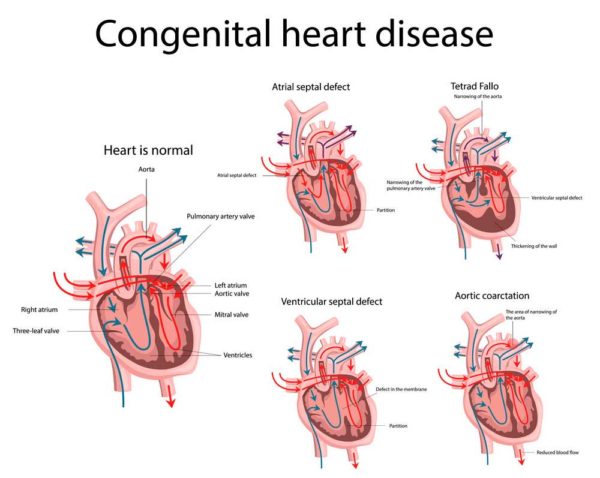
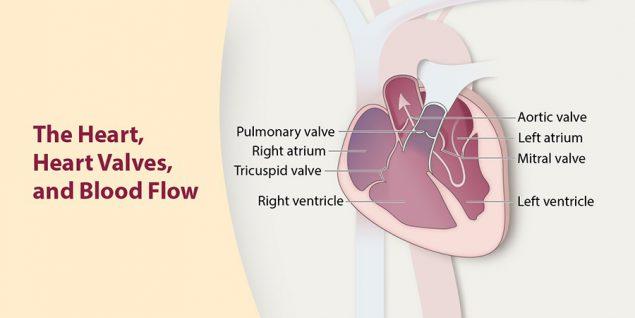
7. Valvular Heart Disease
This heart condition refers to the damage or defect in one or more of the four valves – mitral, tricuspid, aortic and pulmonic valves, present in the heart. Some of the common conditions that may cause valvular heart disease are congenital valve disease and rheumatic fever. It also happens due to ageing.
Symptoms of Cardiovascular Disease:
Speaking of the signs and symptoms, they may vary from individual to individual. Some of the common signs include:
- Uneasiness in chest
- Nausea
- Indigestion
- Heartburn
- Stomach Pain
- Pain Spreading towards Arm
- Feeling Dizzy or Lightheaded
- Jaw or Throat Pain
- Exhausting Easily
- Sweating
- A Cough That Won’t Quit
- Swollen Legs, Feet, and Ankles
- Irregular Heart Beat
Diagnosis
Usually, people with common signs and symptoms of cardiovascular diseases try to carry self-treatment without understanding which part of the heart defects may worsen the situation. Also, a delay in treatment makes recovery a little delayed.
To avoid acute complications, patients with cardiovascular disease are advised to get diagnosed by a cardiologist who will provide adequate medical assistance and suggest suitable treatment. CKS Hospitals is considered the best heart hospital in Jaipur as we are providing one of the best cardiac surgeries in Jaipur equipped with state-of-the-art diagnostic machines that provide accurate results. Heart specialists conduct a few diagnostic tests to figure out the root cause of cardiovascular diseases:
1. Blood Tests
While diagnosing, doctors perform various lab tests wherein they take your blood sample to check the usual signs of heart diseases and their risk factors. Those lab tests and blood samples check cholesterol level, lipid components of blood, and fats.
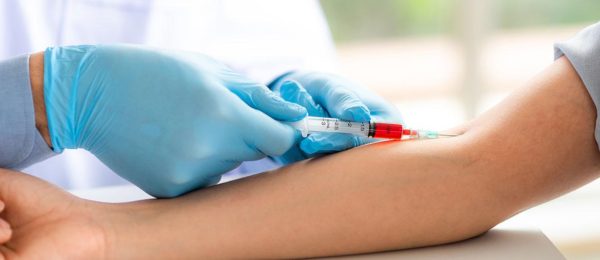
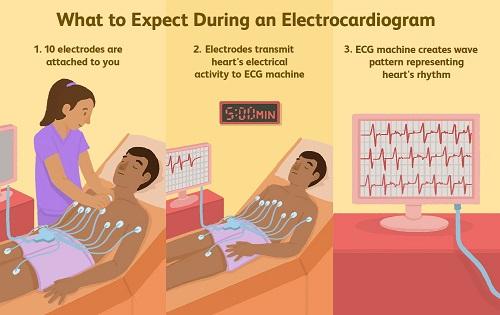
2. Electrocardiogram (ECG)
One of the most common tests, an EKG/ECG, is carried out to record the heart’s electrical activity. An electrocardiogram (zigzag line) indicates the speed and the rhythm of the heart. Although this is a painless test, the patient is strapped to the machine with several patches across the chest, ankles and wrists. Meanwhile, the doctor records the activities of the heart on a portable machine. Usually, this test is used to determine angina attack, heart attack and arrhythmias.
3. Echocardiogram
An echocardiogram is also called echocardiography or diagnostic cardiac ultrasound, and this test procedure is used to analyze the working and system of the heart. The test uses sound waves that make the moving picture of the heart appear on the monitor. Sometimes, heart specialist/cardiologists also combine echocardiography with Doppler to look at the heart areas with poor blood supply. This is also used to check which heart muscles are not functioning normally.
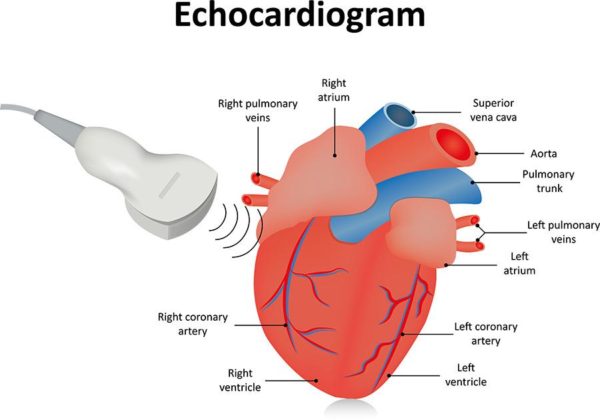
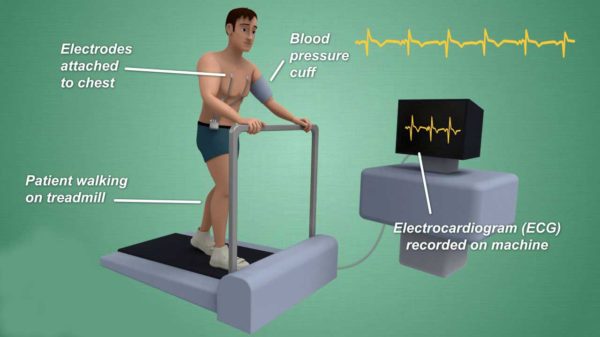
4. Stress Test
The stress test is performed to examine how the patient’s body behaves to the external stress. The individual is asked to run on a treadmill with the patches of EKG/ECG placed across their body used to evaluate the heart’s activity. Patients who cannot exercise are given pills that increase their heart rate.
5. Holter Monitoring
When heart rhythms are not easily detected through ECG test Doctors, perform Holter monitoring to check irregularities in the heart rhythm properly. The portable device is used off camera’s size and has wires with silver dotted electrodes stuck on the skin. The patient is asked to wear a Holter monitor to record a continuous ECG. This test lasts for at least 24 to 72 hours.
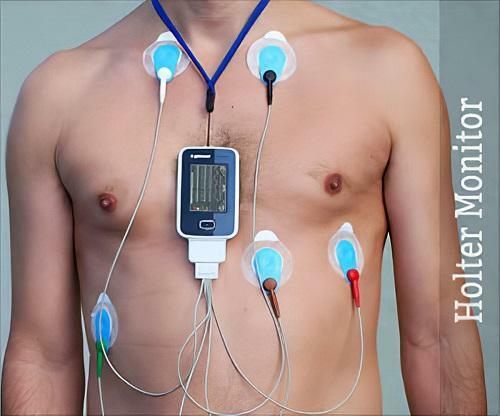
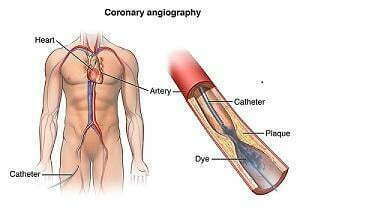
6. Cardiac Catheterization
Cardiac catheterization, another test to diagnose cardiovascular disease. This includes an invasive procedure within which cardiologists insert a long thin tube, referred to as a catheter, in an artery or vein in the neck, arm or groin. The tube is then threaded through the blood vessel to the heart. A contrast dye is inserted through the catheter to get detailed images of the valves, coronary arteries and heart chambers. The test is carried out to examine the heart’s functioning by measuring blood pressure and blood flow.
7. Cardiac Computerized Tomography (CT) Scan
A cardiac CT scan is used to get the heart and chest images to check the issues. During the test, the patients are asked to lie on a table attached to the machine, which comprises an X-ray tube that scans the body and collects images.
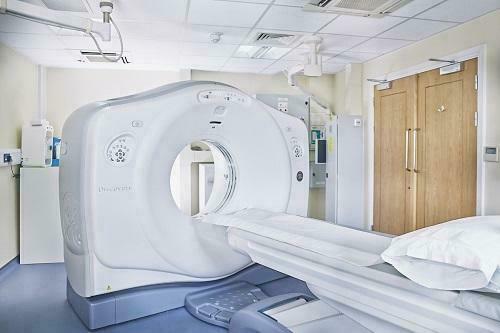
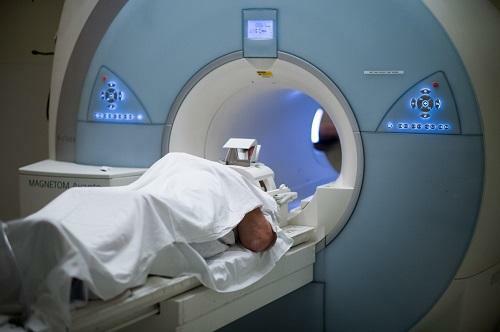
8. Cardiac Magnetic Resonance Imaging (MRI)
This test is a kind of advanced CT-Scan performed to get 3D pictures of the heart. This test uses magnets, radio waves and a monitor to create images that help the doctors in evaluating the heart problem
Treatments
At CKS Hospitals, we use cutting-edge technologies and methodologies to be one of India’s best cardiac Surgery in Jaipur.
After performing all the necessary tests and the diagnosis, the doctors suggest the best treatment for the patients. Some of the common treatments that are performed for cardiovascular diseases:
1. Lifestyle Changes
Our specialized doctors suggest patients maintain a healthy lifestyle that includes eating a low-fat diet, performing regular exercise, and removing smoking & alcohol from their daily schedule.


2. Medications
Medications are preferred by specialists when the lifestyle change does not work properly and can’t see a result in treating the heart disease, and then doctors prescribe medications. The prescription varies from person to person according to the type of heart disease the patient has been diagnosed with.
3. Pacemakers or ICD
This treatment is mostly used for patients who are suffering from arrhythmia. A cardiac pacemaker or an implantable cardioverter-defibrillator (ICD) are tools that are implanted in the chest or abdomen to manage irregular heartbeats. Minor surgery is conducted to place the device.
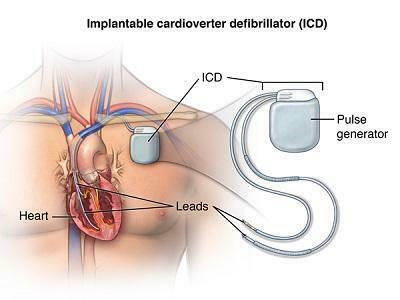

4. Surgery
Surgeries are performed in cases where medication does not work as a treatment. The most common heart surgeries performed are coronary artery bypass grafting, Heart Valve Repair or Replacement and percutaneous coronary intervention and heart transplant; hence these are performed in serious heart conditions. People looking for a cardiology hospital in Jaipur must visit our state-of-the-art healthcare facility to get the best Cardiac surgery in Jaipur. We are also specialized in heart bypass surgery in Jaipur.